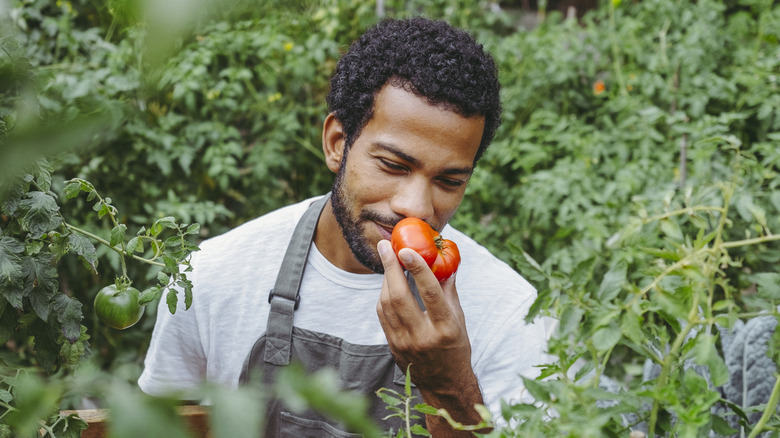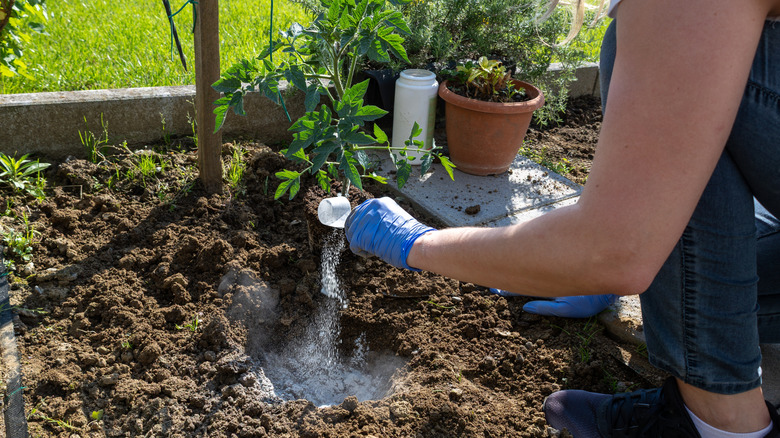Give Garden Tomatoes A Boost With A Simple Soil Addition They Love
We may receive a commission on purchases made from links.
Nothing beats a juicy tomato straight from the vine, except maybe a lot more tomatoes. Sometimes the key to higher yields is what nutrients you add. If you want to increase the health and production of the tomato plants in the garden, try adding bone meal to the soil.
Gardeners often talk about bone meal — a mineral-rich powder made from dried animal bones — as one of the best tomato fertilizers. Bone meal contains high levels of calcium and phosphorus, two minerals that tomatoes need to grow. Calcium helps tomato plants create strong stems, and phosphorus helps them develop strong roots. If your tomato plant has weak, withered leaves or blossom end rot, it might be short on calcium, while a stunted plant might have a poor root system. Bone meal, an organic fertilizer, can help boost stem and root health with an extra shot of calcium and phosphorus.
Organic fertilizers like bone meal tend to have less concentrated nutrients than synthetic fertilizers, but that also means they're less likely to overwhelm or burn the plant. Of course, before adding bone meal, it's a good idea to do extensive soil testing first. Remember that tomato plants like slightly acidic soils, with pH levels between 6 and 8, so puny tomato plants might just as easily be caused by alkaline soil as by a lack of good nutrients or minerals. Plus, some soils already have plenty of phosphorus. If you do determine your soil needs more nutrients, then using bone meal in the garden is easy. We'll show you how.
Add bone meal to your tomato plants in these easy steps
Adding bone meal to the garden is easy. You can even use table scraps from your own kitchen by learning how to crush bone to make bone meal. If you'd rather not take on the extra work, you can buy a ready-made powder, like Back to the Roots' 100% organic bone meal.
To use bone meal properly, apply it directly to the roots of your tomato plants. This means adding a teaspoonful of the powder into the soil when you're transplanting a tomato plant from say a container to a garden bed. This will help you take advantage of the best effects of bone meal on plants. Also, always mix up the bone meal and soil. Bone meal can attract unwanted attention from wildlife like skunks or raccoons. The animals might pick up on the smell and may want to dig up your tomato plants in search of a bone for a snack.
Unwanted wildlife might not be the only consideration in using bone meal, either. While bone meal offers many benefits, it's best used in moderation. If you use too much bone meal at one time, you risk upsetting your soil's balance. Bone meal is a slow-release fertilizer, so it's best to apply once a growing season. Also, if your soil pH is 7.5 or higher, then bone meal might not be the best fertilizer, as tomato plant roots will have a harder time absorbing it.

